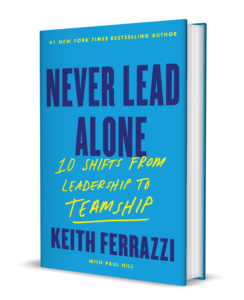Chief Financial Officers are emerging as critical players in the war to attract, develop, and retain talent across an organization — with the need to understand people metrics becoming as vital as the top and bottom-line numbers of the business.
Traditionally, CFOs’ interest in human resources questions stretched only as far as compensation and benefits structures or the pipeline of financial acumen in their own function. But the organizational challenges that have followed this year’s Great Resignation — which saw 4.3 million Americans quit their jobs in August followed by a record 4.4 million in September — is broadening CFOs’ engagement in cultural questions around recruitment and retention. Forward-thinking CFOs are embracing the opportunity to help to define the metrics that support positive working cultures — and quantify the return on investment of talent and training programs. It’s a further sign of how CFOs can become change agents by partnering with their C-suite peers — particularly Chief People Officers or Chief Human Resource Officers — to transform business performance.
Planning for your #1 business expense
Talking after a recent virtual roundtable of leading CFOs, Sara Baxter-Orr, SVP Strategic Growth & Global Head of CFO Advisory Practice at Anaplan, told me there were internal and external drivers behind CFOs needing to become more deeply involved in people strategy. Externally, stakeholders and Wall Street for publicly traded companies rightly want to know more about performance on diversity, equity, and inclusion alongside quarterly earnings. Internally, it started with “pure common business sense.” “Not planning for people is almost planning to fail,” said Sara. “Typically, people are your number one cost, and while most companies will maniacally plan for sales and products down to crazy details, planning for people is hardly ever done to that level. You should be planning for your people the same say you plan top line revenue, supply chain or taxes—right there at the top.” Sara suggested a CFO thinking strategically would be looking at the organization’s need for talent now and in future — and the trade-offs required in the face of wage inflation on a scale unseen for more than a decade. “You have to think about pay in the context of engagement,” Sara said. “If you’re paying an employee $200,000 and they are not engaged, there’s money being wasted. So, it becomes a really challenging question of how teams are being brought together in the new hybrid work environment. CFOs need to give the people question a good portion of their mental real estate.”
The evolving role of the CFO
The shift to more flexible working arrangements in the new hybrid work world is just one example of how working culture can have knock-on implications for compliance and risk — such as tax structures and jurisdictions — for CFOs to manage. So, what does it mean for the CFO role longer term? How will the role evolve? Jennifer Cloherty, CFO at Kellogg North America, was one of the CFOs who took part in a recent virtual roundtable. Jennifer said: “Breadth is going to become really important. You need to think about different elements of your business — like culture, organizational development and strategy, and flexible work arrangements — that aren’t necessarily straight in the channel of pure finance —while understanding tax implications, maintaining focus on risk management, traditional value-creation metrics and the more technical aspects of finance. I think the CFO of tomorrow needs to have a more of an EQ (emotional quotient) as well as an IQ than historical CFOs might have had, and more of an awareness and a sensitivity to organizational dynamics and people.” Jennifer added that people are the most valuable assets in any business. “While they may not sit on our balance sheet like inventory or plant and equipment, it is critical that we invest in them just as we would in our other critical value-creating assets,” she said.
Finding the right metrics
The ongoing challenge is to identify the best people metrics to inform CFO decision-making. Reducing churn, hiring costs and the costs of training and development are easy to calculate and track. “The harder thing to quantify is the value of engagement,” said Jennifer. “We all know that there’s massive value from engagement and from having a culture that supports a really engaged workforce, but how you actually turn that into a financial calculation and quantify it is not so easy.” Sara added that regular pulse surveys of the workforce were one powerful tool to track positive and negative sentiment over time. “Trying to understand what’s on employees’ minds and being authentic in how you go about doing that is important,” said Sara. “It makes a difference when employees feel like they’re being heard and that the leadership cares about their experience.”
Winning the war for talent
The fundamental challenge for CFOs is to begin to view people metrics as just as important as your other key metrics — whether top line revenue metrics and cost metrics or the bottom line of the business. People don’t sit on the balance sheet as an asset, but they are the drivers of commercial value in the business and the creators of intellectual property. If CFOs are to be transformational change agents in their organization, understanding how they can add value to working culture is vital in winning the war to attract and retain talent.






